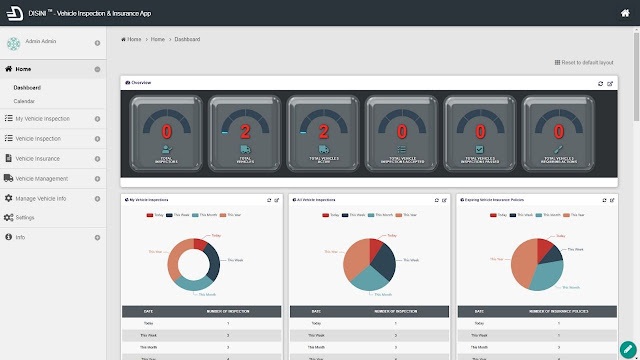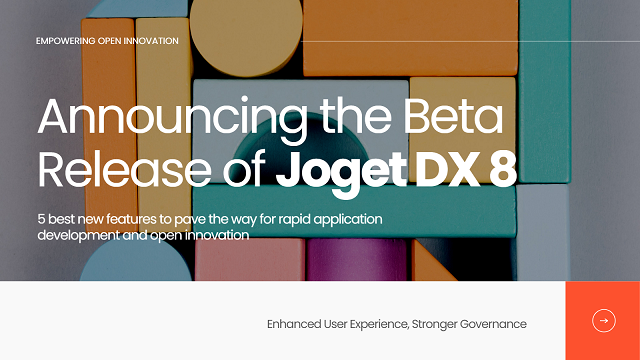CodeLess Blockchain Hacks: Leveraging Blockchain and No-code/Low-code Technology to Solve Real-World Problems
The world today is grappling with a range of challenging issues, from ensuring secure and transparent transactions to safeguarding sensitive data in various industries. But what if there was a solution that blended the security of a decentralized ledger with the agility and efficiency of contemporary application development?
Here come the hacks
With the future of technology in mind, Joget and Chitkara University, a premier institution of higher education in India, teamed up to organize the CodeLess Blockchain Hackathon, providing a unique exploration of blockchain technology and no-code/low-code platforms. This initiative is supported by Hedera - the most innovative, sustainable public ledger for the decentralized economy.
The primary goal of this hackathon is to promote the use of the Joget no-code/low-code platform with Hedera Hashgraph, while also allowing participants from diverse backgrounds to use the technologies to discover solutions for real-world problems.
The CodeLess Blockchain Hackathon takes place on February 23 and 24, 2023 at Chitkara University, Punjab, India. The hackathon is open only to Chitkara University students who are interested in exploring the potential of no-code/low-code and blockchain technology, regardless of their experience level.
The hackathon will be an intense 24-hour session, but a fun and educational experience that will allow participants to showcase their skills and learn from experts in the field. The top 10 finalists will get a chance to present their ideas and solutions in front of industry experts and earn cash prizes.
Exploring the best of both technologies
The future of technology is now, and the CodeLess Blockchain Hackathon is leading the charge by exploring the limitless potential of combining blockchain and no-code/low-code solutions. The hackathon provides a unique opportunity to explore the full potential of this dynamic duo, with participants challenged to create innovative solutions that harness the power of both technologies.
Blockchain offers improved security, transparency, and ease of development making it an invaluable tool for application development. Think of blockchain as a digital ledger or notebook that can never be erased or altered. It's like a shared notebook where multiple people can write, but once something is written on it, it cannot be changed, period. This makes it a perfect tool for recording important information that needs to be secure, such as financial transactions or personal data.
On the other hand, no-code/low-code platforms like Joget abstract away the technical complexity of application development and make it easy for both non-technical business users and professional developers to build enterprise-grade decentralized applications (DApps). Instead of writing codes, users can use a drag-and-drop interface to build DApps that address real-life business challenges. It's like putting together a puzzle instead of writing long instructions for a computer to follow.
By combining these two technologies, you get the best of both worlds. For example, a company wants to keep track of its supply chain. With blockchain, they can securely record all transactions and movements of their products from start to finish in a tamper-proof manner. With no-code/low-code technology, they can easily build an application to manage the end-to-end user experience with multiple form-factor views.
Together, these two technologies create a powerful solution for developing applications with improved transparency, flexibility, and security.
Bring in the technology
During the hacks, participants will be using the Hashgraph Application Studio powered by Joget to create solutions that solve real-world problems. The Hashgraph Application Studio is a tool that brings two different technologies together: Hedera and Joget DX.
Hedera is a type of DLT, similar to a database spread across many different computers instead of being stored on just one. It is often used for things like secure digital transactions and immutable data storage.
Joget DX, on the other hand, is a no-code/low-code platform that makes it easy for people to build applications without knowing how to code.
The Hashgraph Application Studio combines these two technologies by integrating Hedera with Joget DX. So, users can create applications that interact with the Hedera DLT with little to no coding knowledge.
This integration with Joget DX also provides users access to Joget's extensive plugin architecture. This means that users can use additional tools and features provided by Joget to make the most out of Hedera's unique features.
The combination of Hedera and Joget's no-code/low-code platform - the Hashgraph Application Studio leads to a major upgrade in the speed, security, and ease of use of organizational applications. Users can create business applications and DApps faster and with less effort. These two technologies perfectly complement each other, delivering tangible benefits and real-world results.
Hedera Hashgraph explained
Hedera Hashgraph is a type of decentralized ledger technology that allows carbon-neutral, fast, fair, and secure transactions. The fact that Hedera Hashgraph operates in a carbon-neutral manner makes it a sustainable option for businesses looking to reduce their carbon footprint. It works differently from other blockchain technologies, using a unique consensus algorithm that allows many transactions to be processed together. It's like a digital ledger that can handle many transactions at once, making it a good choice for applications that require speed, integrity, and security.
Imagine it like a shared notebook where multiple people can write, but instead of each person waiting for the previous person to finish writing in the notebook before they can write, everyone can write at the same time. This makes Hedera Hashgraph faster and more efficient than other blockchain technologies.
Valuable learning experience
In conclusion, the CodeLess Blockchain Hackathon presents a valuable opportunity for students to immerse themselves in the world of no-code/low-code and blockchain technology. By leveraging the power of the Joget platform and Hedera Hashgraph, participants will have the opportunity to tackle real-world problems and gain a sneak peek into the advancements of technology. This hackathon promises to be an enriching and informative experience for all participants, serving as a key stepping stone towards a more inclusive and user-friendly technological future.
Learn More about Hedera and Joget
How to Create a Blockchain Application Using Hedera and Joget
How to Create a Hedera-Integrated Joget App in Less than 15 Minutes
- Get Started - On-premise, on-demand, public/private cloud, cloud-native and more.
- Try Joget DX 8 - Joget DX 8 is now available as a public beta.
- Joget Demo - Experience the Joget DX platform and witness how a POC can easily be built in no time.
- Joget DX Video Tutorials - Quick overview and build your first app.
- Joget DX Knowledge Base - User and developer reference, samples, and other documentation.
- Community Q&A - Ask questions, get answers, and help others.
- Language Translations - Translations for more than 20 languages.
- Joget Mindshare™ Series - Information sharing and educational content ranging from whitepapers, webinars, video tutorials, customer success stories, and more.
- Joget Academy - Self-paced online learning and certification.
- Joget Marketplace - Download ready-made apps, plugins, templates, and more.
- Joget Events - Upcoming and past Joget events & webinars.
- Joget Press - Joget press releases.
- Joget Reviews - Joget reviews and customer testimonials.





Comments
Post a Comment